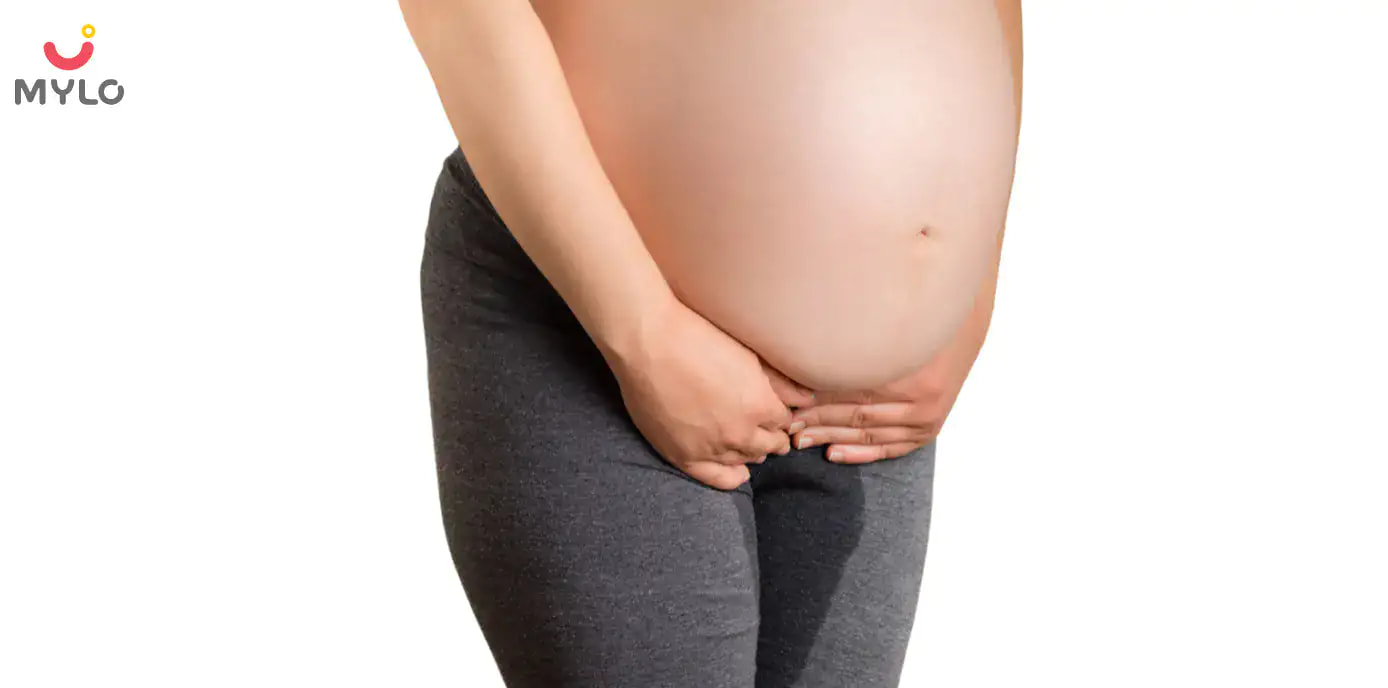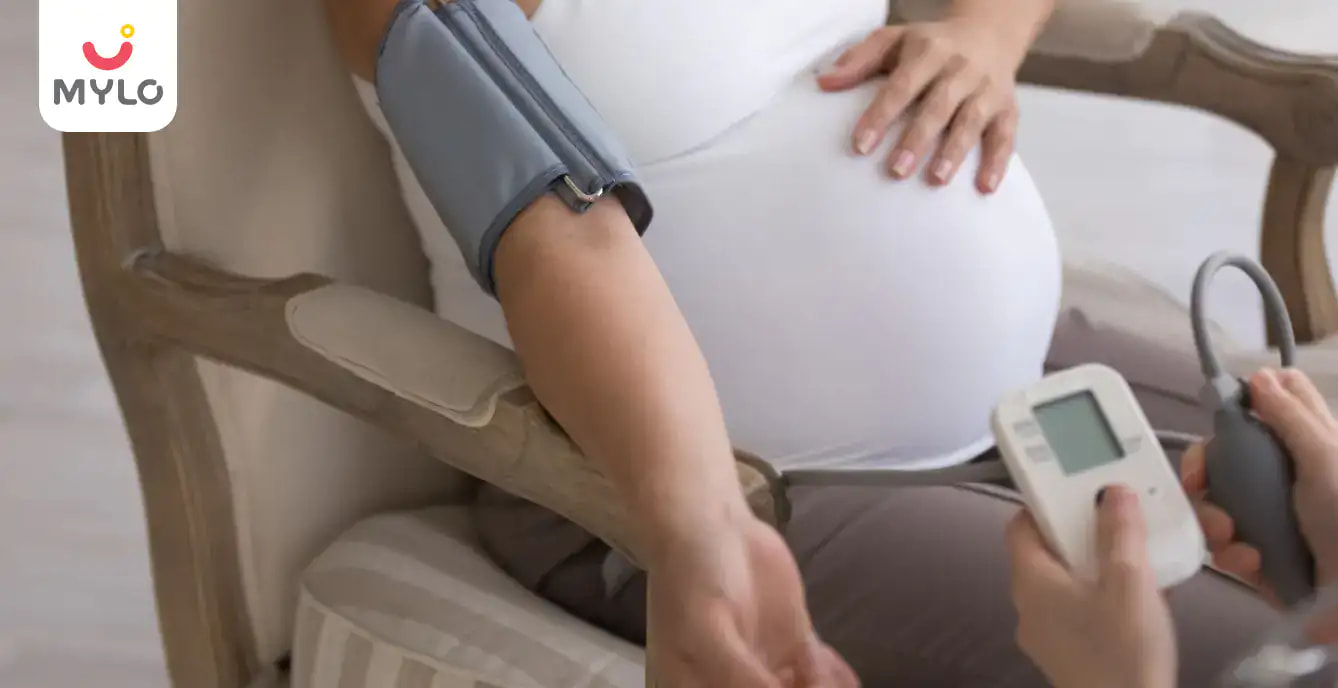Home

Water Break

Water Breaking Early: Signs, Causes & Next Steps
In this Article

Water Break
Water Breaking Early: Signs, Causes & Next Steps
Updated on 20 February 2023



Medically Reviewed by
Dr Madhu Gupta
Obstetrician-Gynecologist - MBBS| DGO, MD - Obstetrics & Gynaecology
View Profile

The experience of giving birth is different for every woman. Don't let scary tales about water breaking keep you up at night. While your interest is piqued, it is not warranted to the point of worry. If you're worried about whether or not your water will break throughout your pregnancy, you can rest easy knowing that any misconceptions will be dispelled by reading the following information.
What Is Preterm Prelabour Rupture of Membranes?
As your unborn child grows, it will be encased in a sac of amniotic fluid. When it's time to give birth, your body releases the fluid from the sac through your vagina. The tide is finally beginning to break for you. This condition is also known as membrane rupture.
Your waters will typically break just before or during labor. Preterm prelabour rupture of membranes, or PPROM, is the medical term for a woman's waters breaking before labor begins when she is less than 37 weeks pregnant. If this occurs, it may cause labor to begin prematurely, however, this is not certain. Treatment for premature labor and its dangers will vary depending on how far along you are in your pregnancy.
Causes Of Water Breaking Early In Pregnancy
In certain cases, the causes of water breaking early in pregnancy remain unknown. However, placental issues including placental insufficiency or a blood clot (haematoma) underneath the placenta or membranes might also contribute to this complication. If you also have any of the following conditions, you may be at increased risk:
-
have a history of preterm delivery or PPROM
-
have any sort of uterine bleeding when pregnant
-
experience any kind of abdominal injury
-
either have a small cervix or have undergone surgery to lengthen it
-
know what it's like to have an abruption of the placenta
-
increased amount of fluid in the amniotic sac (polyhydramnios)
-
are carrying multiple babies
You need to always keep in mind that PPROM is not the result of poor or excessive care during pregnancy.
Water Breaking Signs You Should Be Aware Of?
When your waters finally rupture, you may feel a little popping sensation, followed by a trickle or flow of fluid that you can't stop, unlike when you pee. Variability in fluid loss is possible. You often won't even feel your waters break; the slight trickle of fluid is the sole indication that you've entered the second trimester. When your waters burst, you won't feel any pain. Therefore, these are the water breaking signs that you need to be aware of.
What To Do If Your Water Breaks Early In Pregnancy?
When a woman's water breaks before the 37th week of pregnancy, this is called preterm rupture of membranes (PROM). Possible outcomes include infection in both the mother and the baby, placenta abruption (when the placenta separates from the inner wall of the uterus before delivery), and infection or problems with the umbilical cord. Complications are more likely to occur in premature births.
It's possible that your doctor will recommend an early delivery if you're 34 weeks pregnant at the time of PROM. Antibiotics are often given to women between the ages of 24 and 34 who are about to give birth in order to delay the birth. So, the embryo has extra time to grow before being implanted. You will also get an injection of powerful steroids (corticosteroids) to help your child's lungs grow up faster.
Don't be afraid to ask your doctor any and all questions you have regarding PROM and its potential effects on you and your unborn child.
What are the implications of PPROM for the baby?
Your healthcare provider will go over conceivable outcomes for your baby if your waters have broken prematurely. This will vary depending on your own situation and how far along in your pregnancy you are at the time.
1. Infection
The baby is shielded from harm by a protective barrier created by the membranes. Infection is possible once the membranes have ruptured. This can increase the risk of preterm birth and even sepsis for both mother and child (a life-threatening reaction to an infection).
Infection symptoms consist of the following:
- An elevated body temperature
- Foul-smelling discharge from the genital area
- Increased blood pressure and a rapid heartbeat
- Distress in one's lower abdomen
Your baby may also have an abnormally high heart rate. Premature delivery may be necessary if there are infection indicators during pregnancy. The goal is to keep you and the baby from getting even sicker.
2. Premature Birth
With PPROM, the average time to labor from the time your waters burst is about a week. More than half of all pregnancies end in labor within a week of the mother's waters breaking, and that percentage rises with the advanced gestation of the pregnancy. About 3–4 of every 10 preterm babies are diagnosed with PPROM.
Babies born too early are more likely to have health problems and may need to be cared for in a neonatal intensive care unit. Learn more about the causes and effects of premature birth.
3. Cord Prolapse
When this happens, the umbilical cord enters the vagina through the cervix. Although extremely rare, this emergency complication can be fatal to your newborn.
4. Pulmonary hypoplasia
A lack of amniotic fluid hampers your child's normal lung development. Water breaking before 24 weeks of pregnancy, when the baby's lungs are not fully formed, is more prevalent.
5. Placental Abruption
This is the case if your placenta has already begun to detach from your uterus. Heavy bleeding is possible, which is risky for you and the baby. Study up on placental abruption.
It's unfortunate but true that not every baby born to a mother with PPROM makes it. This is more likely to happen if the mother has an infection, her umbilical cord falls out, she gives birth too early, or her membranes break during labor.
Conclusion
When you call the doctor, he or she will immediately check for a water break. The authorities may send you home if the alarm turns out to be false. It's crucial to maintain composure and attention throughout pregnancy. So, consult your doctor or midwife regularly and make decisions based on the well-being of you and your unborn child.





Medically Reviewed by
Dr Madhu Gupta
Obstetrician-Gynecologist - MBBS| DGO, MD - Obstetrics & Gynaecology
View Profile


Written by
Priyanka Verma
Priyanka is an experienced editor & content writer with great attention to detail. Mother to an 11-year-old, she's a ski
Read MoreGet baby's diet chart, and growth tips

Related Articles
Related Topics
RECENTLY PUBLISHED ARTICLES
our most recent articles

Diet & Nutrition
Foods to eat for healthy fetal brain development
Brain Development
How touch can shape babies’ brain development

Pregnancy Complications
In What Situations Can a Doctor Recommend You to Take Bed Rest During Pregnancy?

Caring for your Newborn
How to Hold a Newborn Baby
Burping Your Baby
Why do you need to burp your baby and what are the best positions to burp your baby?
Carpal Tunnel Syndrome
Carpal Tunnel Syndrome or CTS During Pregnancy : Symptoms, Causes & Treatment
- Can Nipple Stimulation Help in Inducing Labor Naturally?
- Top 10 pregnancy do's and don'ts that is crucial to have a healthy baby
- 7 Excellent Sources of Omega-3 Fatty Acids For Expecting Mothers
- Epidural: Advantages, Disadvantages & Risks
- Dizziness During Pregnancy
- Bed Rest During Pregnancy: Does It Really Help?
- Food Poisoning During Pregnancy: Causes, Symptoms & Treatment
- A Working Mom's Guide to Maintaining Balance
- Vanishing Twin Syndrome: Causes, Symptoms & Treatment
- Oligohydramnios (Low Amniotic Fluid During Pregnancy): Causes, Symptoms & Treatment
- Jaggery in Pregnancy: Benefits & Nutritional Value
- Green Tea During Pregnancy: Benefits, Risks & Safety measures
- Where Can You Buy Female Condoms?
- Is there anything to worry about when your baby passes urine frequently? Here are some warning signs.


AWARDS AND RECOGNITION

Mylo wins Forbes D2C Disruptor award

Mylo wins The Economic Times Promising Brands 2022
AS SEEN IN
















- Mylo Care: Effective and science-backed personal care and wellness solutions for a joyful you.
- Mylo Baby: Science-backed, gentle and effective personal care & hygiene range for your little one.
- Mylo Community: Trusted and empathetic community of 10mn+ parents and experts.
Product Categories
baby carrier | baby soap | baby wipes | stretch marks cream | baby cream | baby shampoo | baby massage oil | baby hair oil | stretch marks oil | baby body wash | baby powder | baby lotion | diaper rash cream | newborn diapers | teether | baby kajal | baby diapers | cloth diapers |








